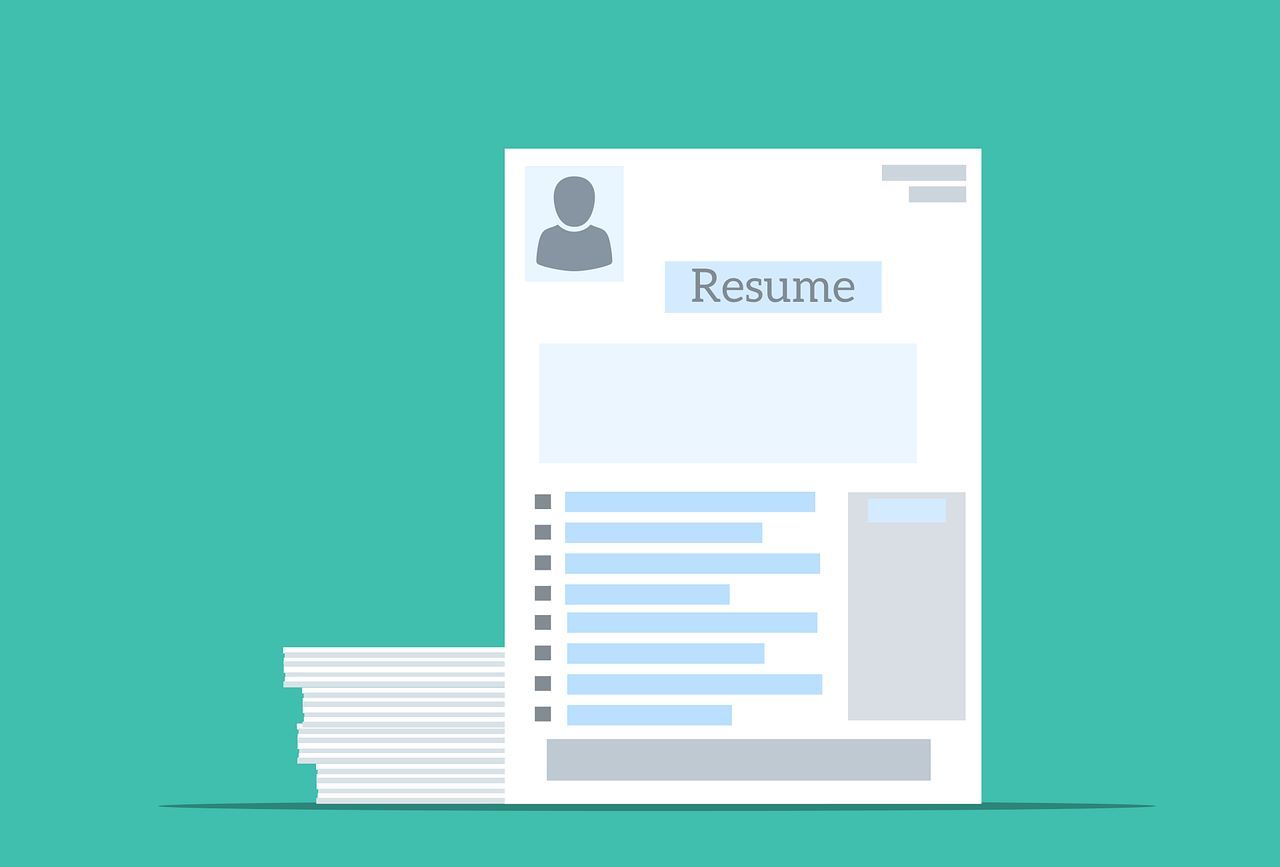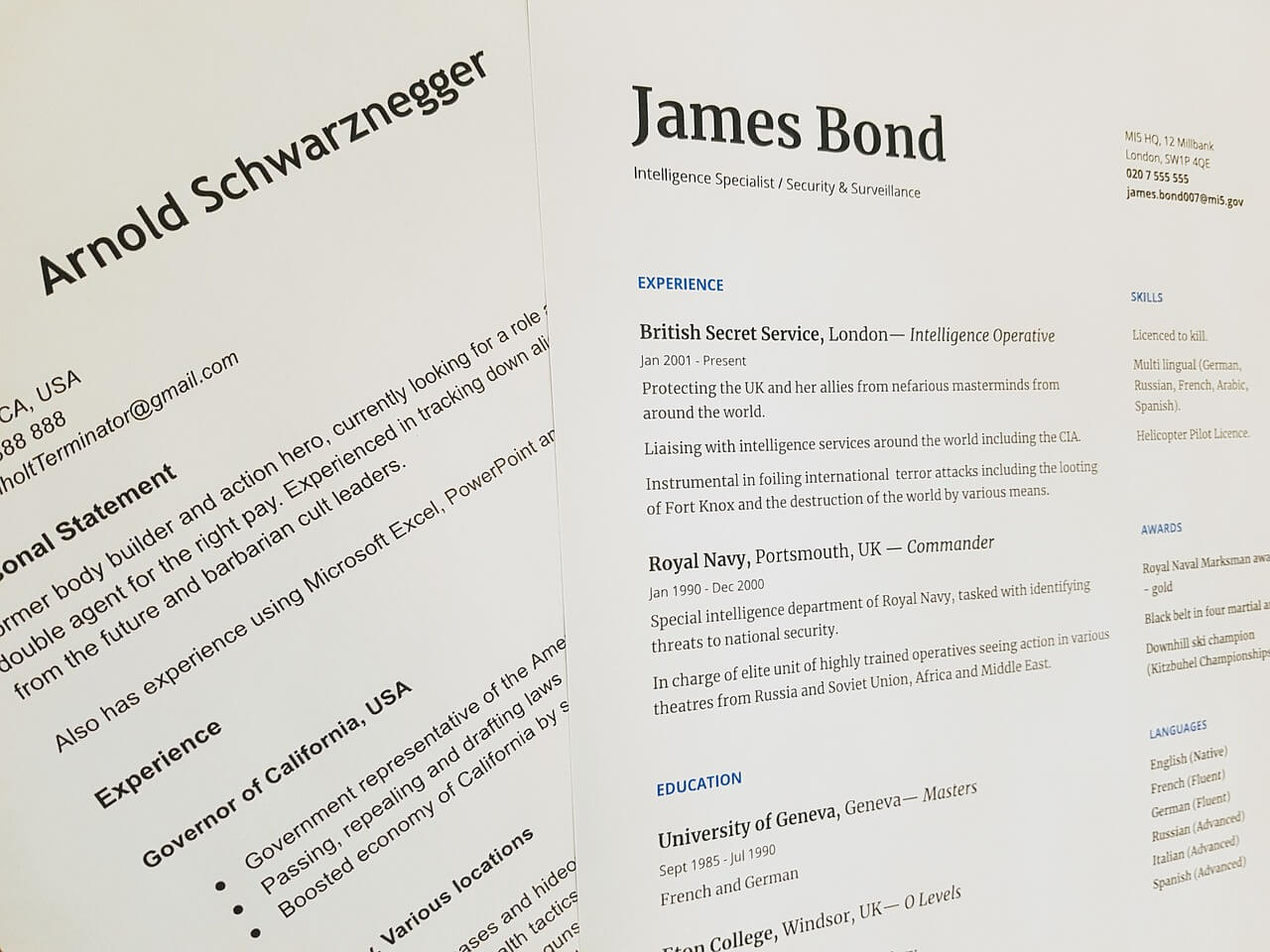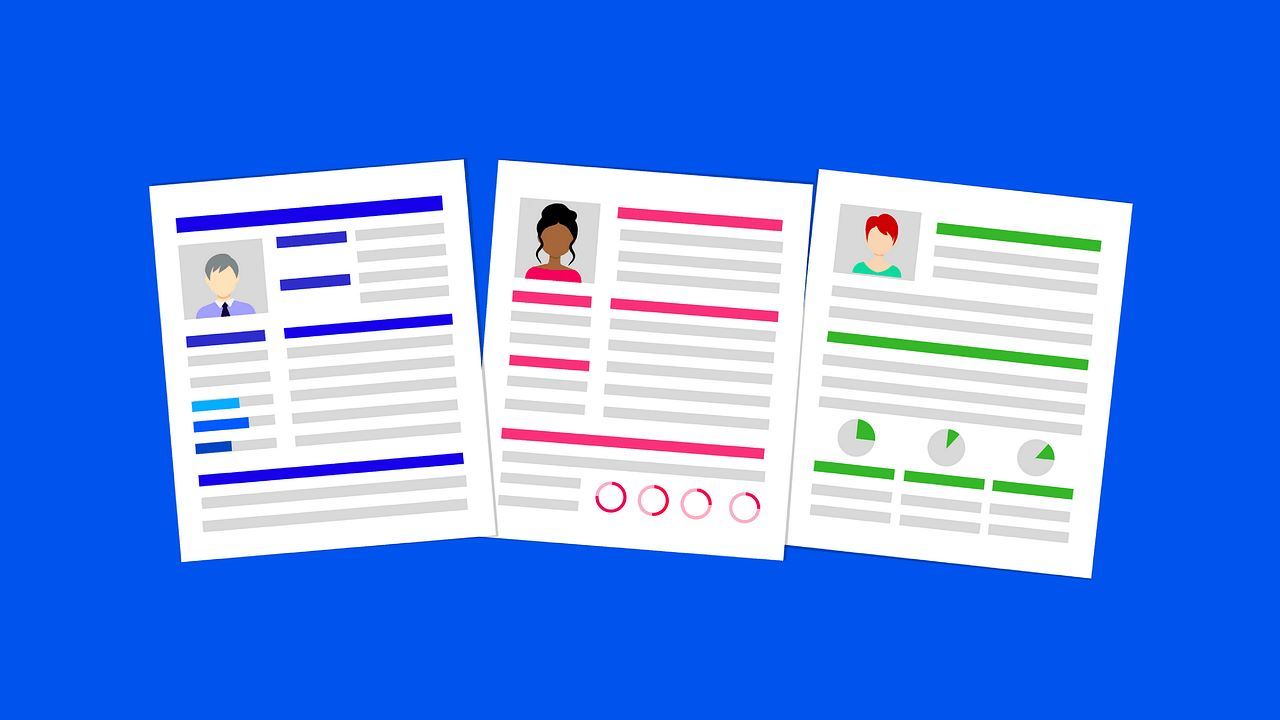Tips for College Student Resume
Unlocking job opportunities and landing your dream job as a college student can be an exciting but challenging journey. One essential tool is a well-crafted college student resume. A meticulously designed resume showcases your skills and experiences and highlights the unique qualities that set you apart from other candidates.
In this Bold blog post, we're going to dive into the art of crafting a strong college resume. We'll share valuable resume tips and insights that will guide you throughout the process. Get ready to transform your resume into a wonderful resource that captures the attention of employers and paves the way to your desired career path. Let's get started!
Browse the Bold Scholarship Blog to learn more about college student resumes!

Understanding the Importance of a College Student Resume
A college student resume is an important document that can make or break your chances of landing your dream job. It is a summary of your education, skills, and experiences relevant to the position you seek. A well-crafted college student resume should grab the attention of potential employers and entice them to learn more about you.
As a college student, you may not have extensive work experience, but that doesn't mean you don't have valuable skills and accomplishments that you can showcase on your resume. In fact, your college years are an excellent opportunity to gain experiences that can make you stand out from other candidates.
Get Matched to Thousands of Scholarships
Create your Bold.org profile to access thousands of exclusive scholarships, available only on Bold.org.
Create Free ProfileShowcasing Your Skills and Accomplishments
When crafting your resume, start by identifying your strongest skills and experiences. Think about the courses you have taken, projects you have completed, and any extracurricular activities or volunteer work you have done. Then, tailor your resume to the job by highlighting examples of how you have utilized these skills to achieve results. Use numbers and statistics to quantify your achievements wherever possible.
It's essential to be specific and provide concrete examples of your accomplishments. For instance, instead of saying, "I am a good communicator," you could say, "I led a team of five members to organize a charity event, where I communicated with various stakeholders, including donors, sponsors, and volunteers."
Standing Out from the Competition
Competition for job opportunities can be fierce, especially for entry-level positions. Therefore, finding ways to make yourself stand out from other candidates is essential. Consider including a section on your resume that showcases your unique qualities, hobbies, or interests. This can help potential employers better understand who you are beyond your educational background and work experience. You can use Canva to build your resume with AI to showcase your relevant skills and experience on paper.
Your extracurricular activities can help showcase your skills and interests. Read this guide for help on choosing the best extracurriculars for admissions officers and employers.
For example, if you are applying for a marketing position, you could mention that you are an avid blogger and have a personal website where you share your thoughts on the latest marketing trends. Or, if you are applying for a position in a non-profit organization, you could mention your community service with a local charity.
Remember, your resume is your chance to make a great first impression. Take the time to tailor it to the position you are applying for. Highlight academic achievements, professional experience, communication skills, and more to find ways to make yourself stand out.

Crafting a Strong Objective or Summary Statement
Your objective or summary statement is your first impression on a potential employer. It should be a concise and compelling statement summarizing your experience and qualifications. This section of your resume is also an opportunity to tailor your skills and experiences to the specific job you are applying for.
When crafting your objective or resume summary, it's important to keep the position requirements in mind. Take a close look at the job description and identify the skills and experiences that are most important for the position. Use these keywords and phrases in your objective statement to show potential employers that you have read and understood the requirements.
Tailoring Your Objective to the Job
Customizing your objective statement can increase your chances of being selected by applicant tracking systems. These systems scan resumes for specific resume keywords and phrases, and if your objective statement includes these keywords, your resume is more likely to be selected for further review.
When tailoring your objective statement, it's important to strike a balance between highlighting your skills and experiences and keeping your statement concise. A good rule of thumb is to keep your objective statement to one or three sentences.
Highlighting Your Unique Qualities
Your summary statement is also an opportunity to showcase your unique qualities and strengths. If you have a particular skill or experience that sets you apart from other applicants, be sure to highlight it here.
For example, if you are applying for a job in marketing and have experience in social media management, you could highlight this experience in your summary statement. You could say something like, "Experienced social media manager with a proven track record of increasing engagement and driving traffic to websites."
Remember, your objective or summary statement is your chance to make a strong first impression on a potential employer. Take the time to craft a statement highlighting your skills and experiences while also showing that you understand the job requirements.

Selecting the Right Resume Format
Choosing the appropriate resume format is crucial when it comes to presenting your skills and experiences in the best possible light. There are three main resume formats to consider: chronological, functional, and combination. Let's take a closer look at each one:
Chronological Resume Format
This format is the most commonly used and focuses on showcasing your work history in reverse chronological order. It highlights your career progression, emphasizing your most recent roles and achievements. It is suitable for individuals with a stable employment history and those who want to demonstrate a clear career path.
When using a chronological resume format, focusing on the most relevant experience and accomplishments is essential. Be sure to use action verbs and quantifiable achievements to demonstrate your impact in previous roles.
Functional Resume Format
This format emphasizes your skills and abilities rather than your work history. It is ideal if you are changing careers, have gaps in your employment, or have limited work experience. The functional format allows you to highlight your relevant skills, accomplishments, and qualifications upfront, making it easier for hiring managers to see your potential.
It allows you to highlight your transferable skills and showcase your qualifications. This format is particularly useful when applying for positions that require specific skills or certifications.
When using a functional resume format, it is essential to organize your skills and experiences in a way that is easy to read and understand. Use headings and bullet points to break up the content and make it more visually appealing. Make sure to include specific examples of how you have used your skills in previous roles.

Combination Resume Format
As the name suggests, this format combines elements of both the chronological and functional formats. It offers a balance between showcasing your work history and highlighting your skills and achievements. This format works well for individuals with a solid work history and specific skills that are relevant to the desired position.
When using a combination resume format, balancing your work history and skills is essential. Make sure to organize your resume to highlight your most relevant experience and skills. Use bullet points and specific examples to demonstrate your achievements and impact in previous roles.
Resume Templates & Samples
There are numerous websites and platforms dedicated to offering resume templates and examples. Use samples as a reference and inspiration to create a personalized and impactful resume that effectively highlights your qualifications. Here are a few popular options:
- Microsoft Office Templates: Microsoft offers a wide range of resume templates for different industries and job positions. You can access these templates directly through Microsoft Word or by visiting their official website.
- Resume Genius: Resume Genius provides a collection of professionally designed resume templates and samples. You can browse through various categories and customize the templates to suit your needs.
- Canva: Canva is a versatile graphic design platform that offers a selection of resume templates. You can choose from their pre-designed layouts and customize them with your own content.
- LiveCareer: LiveCareer provides a vast library of resume samples, cover letters, and helpful resume-writing tips.
You can also look at a college student resume template through a simple Google search for inspiration. Also, check with your university or college as they often offer resume templates through Google Docs.

Emphasizing Your Education and Coursework
As a college student, your education is crucial to your resume. Be sure to include information about your degree, major, and any relevant coursework.
Listing Relevant Courses and Projects
Highlight courses and projects that directly relate to the job you are applying for. This shows your knowledge and expertise in the field and demonstrates your interest and dedication. You can use that information to highlight your experience if you've participated in work-study jobs!
Including GPA and Honors
If you have a high GPA or have received any academic honors, be sure to include them on your resume. This can help you stand out from other candidates and show your dedication to academic excellence.
Highlighting Your Work and Internship Experience
Showcasing your work and internship experience is crucial in impressing potential employers. By highlighting your achievements and responsibilities, you can effectively communicate your skills and abilities, demonstrating the value you bring to the table.
To make the most impact, begin by listing your most recent position at the top. Provide detailed descriptions of your responsibilities and accomplishments, offering potential employers a comprehensive understanding of your capabilities.
It is important to use action words when describing your responsibilities and achievements. This will help to convey your accomplishments in a clear and concise manner. For example, instead of saying, "I worked on a project," say, "I led a team of five in the successful completion of a project that resulted in a 20% increase in revenue."
Describing Your Responsibilities and Achievements
When describing your responsibilities and achievements, be specific. Use concrete examples to demonstrate your skills and abilities. This will help potential employers see how you can contribute to their organization.
For example, if you were responsible for managing social media accounts for a company, you could say "I developed and implemented a social media strategy that resulted in a 50% increase in engagement and a 25% increase in followers."
Quantifying Your Impact
Quantifying your impact using numbers, statistics, or percentages can be a powerful way to demonstrate your value to an organization. This can also help potential employers visualize how you could contribute to their company.
For example, if you were a sales associate, you could say, "I consistently exceeded my sales goals, achieving a 15% increase in revenue for the company."

Highlighting Extracurricular Activities and Volunteer Work
Don't underestimate the power of extracurricular activities and volunteer work when it comes to bolstering your resume. These experiences can provide valuable skills and insights that are highly relevant to potential job positions. Make sure to highlight any noteworthy accomplishments or leadership roles you held during these activities.
Participating in extracurricular activities and dedicating your time to volunteer work showcases your well-rounded nature and commitment to personal growth. It also demonstrates your ability to juggle multiple responsibilities and effectively manage your time.
For example, if you were a member of a sports team, you could highlight how you learned the importance of teamwork and communication. Or, if you volunteered at a local soup kitchen, you could mention how you developed empathy and compassion for others.
Demonstrating Leadership and Teamwork
When crafting your student resume, it's essential to demonstrate your leadership abilities and teamwork skills. Employers highly value these qualities as they indicate your potential to contribute effectively within a professional setting.
To highlight your leadership skills and teamwork experiences, consider including relevant roles such as club president or team captain, and emphasize the responsibilities and accomplishments associated with those positions. Discuss group projects or collaborative initiatives you participated in, detailing your specific role and emphasizing the outcomes achieved through teamwork.
Quantify your achievements whenever possible to provide concrete evidence of your abilities. Use action verbs to convey your active involvement and include volunteer work that showcases your leadership or team-oriented skills. Remember to provide specific examples that illustrate challenging situations, the actions you took, and the positive results achieved.
Connecting Activities to Job Requirements
It's beneficial to establish connections between your extracurricular activities and volunteer work and the specific requirements of the job you're applying for. This demonstrates your understanding of the position and showcases how your skills and experiences align with what the job demands.
For instance, if you are applying for a job as a writer, you could discuss how your experience as a writer for a local nonprofit organization allowed you to gain valuable experience in crafting engaging and informative content, conducting research, and meeting deadlines. Or, if you are applying for a job in healthcare, you could highlight how your volunteer work at a hospital gave you hands-on experience in patient care and communication.
By making these connections, you can show the employer that you have a genuine interest in the job and that you have taken the initiative to develop the skills and experience needed to succeed in the role.

Including Relevant Skills and Certifications
Include any relevant skills and certifications that demonstrate your competency in the job field. This can also help applicant tracking systems identify your resume as a potential match for the job.
Technical and Computer Skills
In today's job market, having strong technical and computer skills is essential. Be sure to list any relevant programming languages, software, or hardware that you have experience with.
Language Proficiency and Soft Skills
Language proficiency and soft skills, such as communication, problem-solving, and teamwork, are also highly valued by employers. Be sure to list any language skills you have and provide examples of how you have demonstrated soft skills in previous positions.
Crafting a Compelling Cover Letter
A cover letter is your opportunity to tell your story and demonstrate your passion for the job. Be sure to follow the standard business letter format and address the hiring manager by name.
Addressing the Hiring Manager
Research the hiring manager's name and title before writing your cover letter. Addressing the hiring manager by name shows that you have done your research and demonstrates your attention to detail.
Telling Your Story and Connecting to the Job
Your cover letter should explain why you are interested in the job and what unique qualities you bring to the position. Be sure to connect your experiences and skills to the job requirements and demonstrate why you are the best candidate for the position.

Proofreading and Formatting Your Resume
Before submitting your resume and cover letter, be sure to proofread them carefully for grammar and spelling errors. Use a clean and simple format and consistently use font and formatting throughout your documents.
Ensuring Consistency and Clarity
Make sure your resume and cover letter have a consistent format and are visually appealing. Use clear, concise language and bullet points to make your information easy to read and understand.
Utilizing Resume Templates and Examples
If you're unsure where to start, many resume templates and examples are available online. Use these resources as inspiration and adapt them to your specific skills and experiences.
Leveraging Networking and Social Media
Networking and social media can be powerful tools in your job search. Connect with alumni and professionals in your field and optimize your LinkedIn profile to showcase your skills and experiences.
Connecting with Alumni and Professionals
Many colleges and universities have alumni networks and career centers with which recent college graduates and current students can connect to help them meet professionals in their field. Attend networking events and reach out to individuals on LinkedIn to build your network.
Optimizing Your LinkedIn Profile
Your LinkedIn profile is a digital extension of your resume and can be a powerful tool in your job search. Be sure to optimize your profile by including relevant keywords, showcasing your experience and skills, and connecting with other professionals in your field.

Frequently Asked Questions About Student Resumes
How long should my student resume be?
It's generally recommended to keep it to just one page. The idea is to prioritize the most important and relevant information. You want to showcase your experiences, skills, and achievements concisely and impactfully, specifically highlighting the ones that align with the job you're applying for.
What sections should I include in my student resume?
A typical student resume includes sections such as contact information, objective or summary statement, education, relevant coursework, internships or part-time jobs, extracurricular activities, skills, and achievements. Customize the sections based on your individual experiences and the requirements of the job you're applying for.
Should I include a cover letter with my student resume?
Including a cover letter is generally a good idea as it lets you elaborate on your qualifications and show your interest in the position. However, some job applications may not require one. Follow the employer's instructions and submit a cover letter when requested or when you think it will enhance your application.
Create a Bold profile to maximize grant and scholarship opportunities!

About Bold.org Editorial Team
Our dedicated Editorial Team is passionate about empowering students on their academic journey by providing valuable insights into scholarships, student loans, finances, and college life. We believe in the influential power of education and strive to make the path to success a bit smoother for every student. College is more than just classes and exams; it's a transformative experience. Our articles explore various aspects of college life, from choosing the right major to balancing academics and extracurricular activities. Our objective is to help students and graduates receive more information about scholarships, grants, and all sorts of financial aid.
Our team is made up of expert college students and graduates with personal experience funding their education, using a voice catered to students to provide informational content through accessible means. With this student-centric voice, the team is able to serve a wide range of audiences, from high school users and college students to adult learners and graduates looking to pay off student loans.
Here at Bold.org, we work with expert Content Writers and Editors to create the most compelling and informative blog articles. The content found on Bold.org is original and published after an extensive research process. With our commitment to providing accurate, timely, and relevant information, we aim to be your go-to resource for all your academic and financial needs.